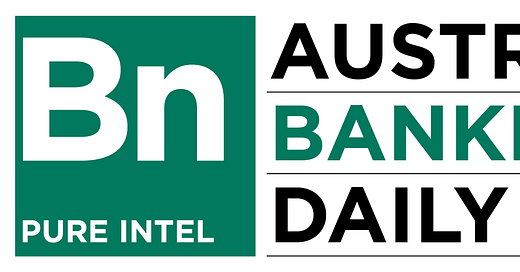Day 350: 'There have been consequences'
An introductory weekday newsletter from Schwartz Media. Counting the days since the banking royal commission was established.

Good afternoon and welcome to day 350.
Today in summary: ANZ blames “exactness” for taking up to four years to identify breaches of its financial services license; ASIC sets its sights on buy now, pay later services like Afterpay; and AMP updates the market after yesterday’s testimony on just how much it will have to repay customers.
-- Charis
Current banker panic level: 😱
Please don’t keep The Inquisition to yourself. Forward this email to your colleagues and encourage them to sign up for free here.
ANZ has taken an average of four years to identify breaches of its financial services license, chief Shayne Elliott has told the Hayne royal commission. And 213 days after becoming aware of a breach to report it to the regulator. It takes a average of 198 days (the one area it wasn’t the worst of the banks) to make the first payment to affected customers. Elliott told the commission it was all about “exactness”:
“We had a culture of before we started remediating any customers we wanted to have total knowledge of the full extent of who exactly should be remediated and so there was a desire for exactness and completeness before we even commenced remediation.
“That was a cultural norm, if you will, within the company. It’s wrong. It’s flawed.”
Regulator ASIC is closing in on buy now, pay later services like Afterpay that have managed to get around regulation through their innovative fee structures. The regulator’s review of the sector found the number of consumers using such services increased five-fold from 400,000 to 2 million in the three years to 2017-2018. One in six got into financial difficulty.
ASIC wants its proposed product intervention power to be extended to buy now, pay later providers, allowing it to stop the sale of a credit product or impose various conditions if there is consumer detriment. ASIC Commissioner Danielle Press said:
“The exponential growth in this industry, along with the risks we have identified, means this will remain an area of ongoing focus for ASIC. One area we will be targeting is where consumers are paying more than they need to for using a buy now pay later arrangement.”
AMP has advised the market of the A$778 million acting CEO Mike Wilkins yesterday told the royal commission the wealth manager was expecting remediation to cost, sending the company’s shares down. It included A$318 million in costs and lost earnings for which it has not yet provisioned.
Back in the dock today, Wilkins also stuck to the corporate line that vertical integration was good, despite advisors putting their own interests ahead of clients. He also put the fees for no service scandal down to the actions of people not following policy.
"Policies were in place, fees were to be turned off. Those policies were not followed and there have been subsequent consequences for those people who didn't follow that policy."
Today’s burn prize: AMP chief customer advocate Melanie Howard-McDonald
🔥🔥🔥
“I think she was having some problems in terms of navigating some parts of the business to get information that she was looking for, which may have prompted some of that discussion.”
AMP acting CEO Mike Wilkins throws the wealth manager’s customer advocate under a bus for suggesting the company effectively acted as four separate businesses that happened to do business with eachother.
The Commentariat
NAB chairman Ken Henry’s performance at the royal commission raises the question how much longer he can continue as chairman of NAB, writes The Australian’s Ben Butler. Henry was “dismissive, arrogant,” and “flippant”.
“Shareholders are, however, generally quite good at telling the difference between an asset and a liability. Those watching Henry’s performance yesterday shouldn’t have any difficulty figuring out which category to put him in.”
This is an introductory service while we’re building a comprehensive daily paid online publication, coming in early 2019.
We’re not here to offer opinion, simply to cut through the noise, and help you make sense of the emerging policy and market trends you need to be across. We call it pure intel. You can read more about us here.


